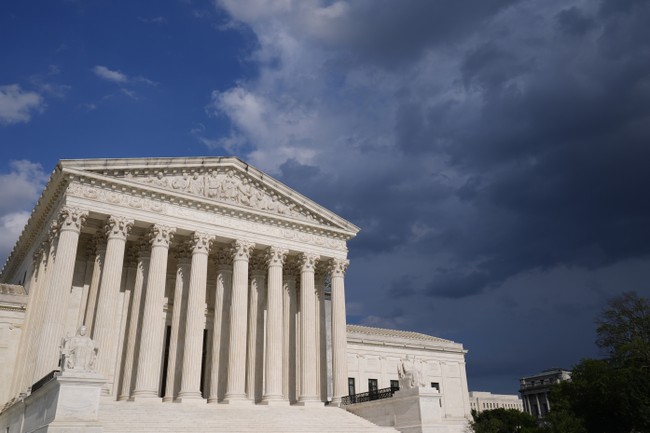
Intuitively, court employees in California, an in-home caregiver in Washington State, and public employees in Oregon have little in common.
But each is among a list of public servants whose credible allegations of government union misconduct will be reviewed by the United States Supreme Court during its opening conference on Monday, September 30.
In 2018, the Supreme Court’s decision in Janus v. AFSCME held that the First Amendment prohibits government employers from requiring public employees to pay mandatory union fees. Before a public servant becomes a union member, the Court ruled, an employee must clearly and affirmatively consent to dues payments.
But in the years since Janus, Big Labor has resorted to narrow dues revocation windows, forged membership cards, and other coercive habits to counteract a downturn in union membership.
Though a slew of public employees have filed suit against these practices in deep-blue union strongholds across the West Coast, most have been dismissed by lower courts.
Public school teacher Glenn Laird, for example, attempted to cancel his membership with the United Teachers of Los Angeles after the union refused to resume classroom instruction following COVID-19 closures unless the district fulfilled a laundry list of progressive demands that included “defunding the police.”
Though Laird modified his membership contract, allowing him to cancel dues payments at any time, UTLA refused and continued to take his money anyway.
In San Bernardino, a pair of Superior Court employees likewise attempted to cancel their Service Employees International Union (SEIU) membership during a specified membership revocation window. Again, the union declined, insisting that renewal of its collective bargaining agreement created a new opt-out period two years in the future.
In yet another instance of Big Labor misconduct in California, Los Angeles Sheriff’s Department employee Michael Craine attempted to cancel dues payments after his representative, the American Federation of State, County, and Municipal Employees (AFSCME) Local 36, refused to object to his employer’s COVID-19 vaccine mandate.
AFSCME refused, citing a dues revocation window established by an expired union contract that Craine had not agreed to.
In 2005, Los Angeles customer service representative Christopher Deering signed for membership with the International Brotherhood of Electrical Workers (IBEW) Local 18 under the condition that he could cancel dues at any time.
But after Deering attempted to leave the union in August 2020, IBEW continued to collect dues from his paycheck for eight months, insisting that, according to his collective bargaining agreement, membership cancellations could not be processed until April Fool’s Day of the following year.
Troublingly, additional California unions have attempted to collect nonconsensual dues by way of forgery.
Tanishia Hubbard, an in-home caregiver who tends to her disabled son, had no memory of signing a union membership card as she attempted to cancel dues payments shortly after the Janus decision. When pressed, SEIU 2015 presented an electronic membership card with a clearly forged signature.
Beyond California, an emerging pattern of union corruption extends across state lines.
In Washington, Kristy Jimenez, another victim of SEIU forgery, is an in-home caregiver who tends to several of her family members, including a son battling cancer.
After SEIU 775 forged her signature on a dues authorization card, Jimenez attempted to cancel membership several times. The union refused based on restrictions on a membership form that she never signed.
In Oregon, eight public employees likewise wanted out of SEIU membership. While SEIU 503 honored the request, stripping the employees of the ability to vote in workplace elections, the union continued to deduct dues, plus a $2.75-per-month surcharge to fund SEIU’s political activities.
Each of these allegations dismissed by lower courts not only represent a clear violation of the Supreme Court’s ruling in Janus but establish a pattern of government union abuse that extends across state and industry lines.
On the flipside, now appealed by the government union watchdog Freedom Foundation, each case presents the Supreme Court with a new opportunity to reinforce the worker protections it solidified through its landmark decision in 2018.
Without intervention from the Supreme Court, government union abuse will continue to operate virtually unchecked, ensuring that public servants like Laird, Craine, Deering, Hubbard, Jimenez, and others will continue to fall victim to Big Labor’s empty promises.
Maddie Dermon is director of communications for the Freedom Foundation.
